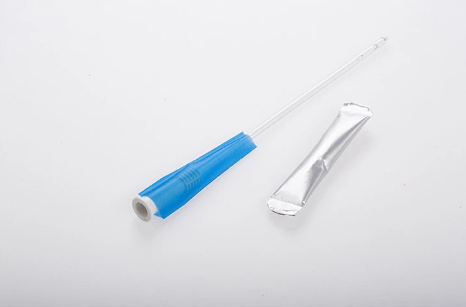TEl: +86-13148388090
Fax:+86-571-88616515
How to Use Intermittent Catheters when Traveling? (Recommended)
Author: admin / 2024-12-31Are you planning to travel by plane or train? If you have this plan and are worried about whether can bring intermittent catheters on the trip. The answer is yes. Whether you're traveling for work, study, or leisure, you can carry catheters to your destination. If it’s your first time carrying them and you’re feeling nervous, this article provides tips to help you feel more at ease, including what to bring and how to navigate airport security. Here, we’ll share practical tips to make your journey easier. 
Understanding Airline Travel Security Regulations
The first step in preparing for your trip is to understand the airline’s baggage policy and security regulations. Failing to do so might delay your travel. In the U.S., the Transportation Security Administration (TSA) allows medical necessities, including intermittent catheters and related supplies, to be carried on board.
According to TSA guidelines, you can carry a reasonable amount of medical liquids in your carry-on bag. These liquids can exceed the usual 3.4-ounce (100 ml) limit but must be presented for inspection at the security checkpoint. This means you can bring liquids like lubricants and antiseptic gels necessary for catheterization without worrying about breaking the rules. However, note that TSA cannot guarantee all excess liquids will pass security, so it’s advisable to confirm the policies with the airline beforehand.
Important Tips:
-
All liquids exceeding the limit must be inspected separately.
-
Prepare a note explaining that these items are for medical use to speed up the process.
-
If you have a medical certificate, carry it with you to communicate clearly with TSA personnel.
How to Organize Your Supplies?
Planning for your supplies will make your journey smoother.
1. List all the necessary items
-
Lubricants
-
Cleaning wipes
-
Antiseptic gel
-
Mirror (if needed for assistance)
-
Gloves (if needed)
-
Catheters
It's important to calculate how many catheters you'll need based on your travel frequency and carry extra sets in case of emergencies. Store them in a convenient place, such as a dedicated travel pouch.
2. Pack a small travel bag
Consider packing a small, compact bag to store your catheters and related items. This bag can go in your carry-on or be carried on your person (e.g., in a shoulder bag or knee bag). The advantage of a travel bag is that it keeps your items organized, easily accessible, and prevents contamination.
3. Bring extra clothes
If you have concerns about possible incontinence during your trip, bringing a change of clothes can reduce inconvenience and embarrassment. If you’re taking a long flight, you might also want to pack a few extra sets of clothes in your checked baggage.
4. Plan for unexpected situations
There could be flight delays, lost luggage, or other unforeseen issues. Pack extra catheters in different carry-on bags to cover any emergencies. Contact your airline in advance to learn their policy on medical supplies in checked and carry-on luggage.

How to Pass Through Security Smoothly
During security, your catheters and related supplies will undergo special screening, but with the right preparation, it will be easy to handle. Here are some tips:
1. Inform security staff in advance
When going through security, proactively inform TSA officers that you are carrying medical necessities like catheters and lubricants. If your liquids exceed the 3.4-ounce limit, show them to the officer for inspection.
2. Provide medical documentation
If you're concerned about possible issues, bring a doctor's note explaining that you need to carry these supplies. This can help TSA personnel understand your situation better.
3. Keep items separate
Pack your catheters and related supplies separately and place them at the top of your carry-on, making them easy to retrieve for inspection.
4. Be prepared for additional screening
In some cases, TSA may perform additional screening of medical necessities, which may include manual checks or separate scanning. If this happens, remain calm and cooperate with the process.
Things to Consider When Using a Catheter on a Plane
During long flights, you may need to use a catheter. Here are some things to keep in mind:
1. Avoid contamination
The water on planes is typically not suitable for direct use. Before catheterization, use antibacterial wipes and disinfectants to clean your hands and ensure hygiene.
2. Maintain privacy
If you need to catheterize on the plane, notify the flight attendants in advance. They can arrange a convenient location or offer assistance.
3. Prepare for unexpected situations
In-flight turbulence or cramped space might make catheterization difficult. Be mentally prepared and try to choose a suitable time for catheterization.
4. Bring enough supplies
Pack extra catheters and accessories in case of unexpected needs. For example, if there are flight delays or lost luggage, these additional supplies will help ensure a smooth journey.
Takeaway
Whether traveling by plane or train, carrying intermittent catheters is possible, but importantly, you should get to know the regulations beforehand to avoid any disruptions. Moreover, plan in advance, and prepare your essential items, and a doctor's note may help in case. With the tips mentioned, you can significantly reduce any travel-related discomfort and anxiety. Finally, remember to carry extra catheters to ensure you can complete your trip smoothly, even in case of delays or unforeseen circumstances. Bever Medical offers high-quality intermittent catheters, and if you plan to carry extra supplies to make your trip more comfortable, feel free to contact us.



